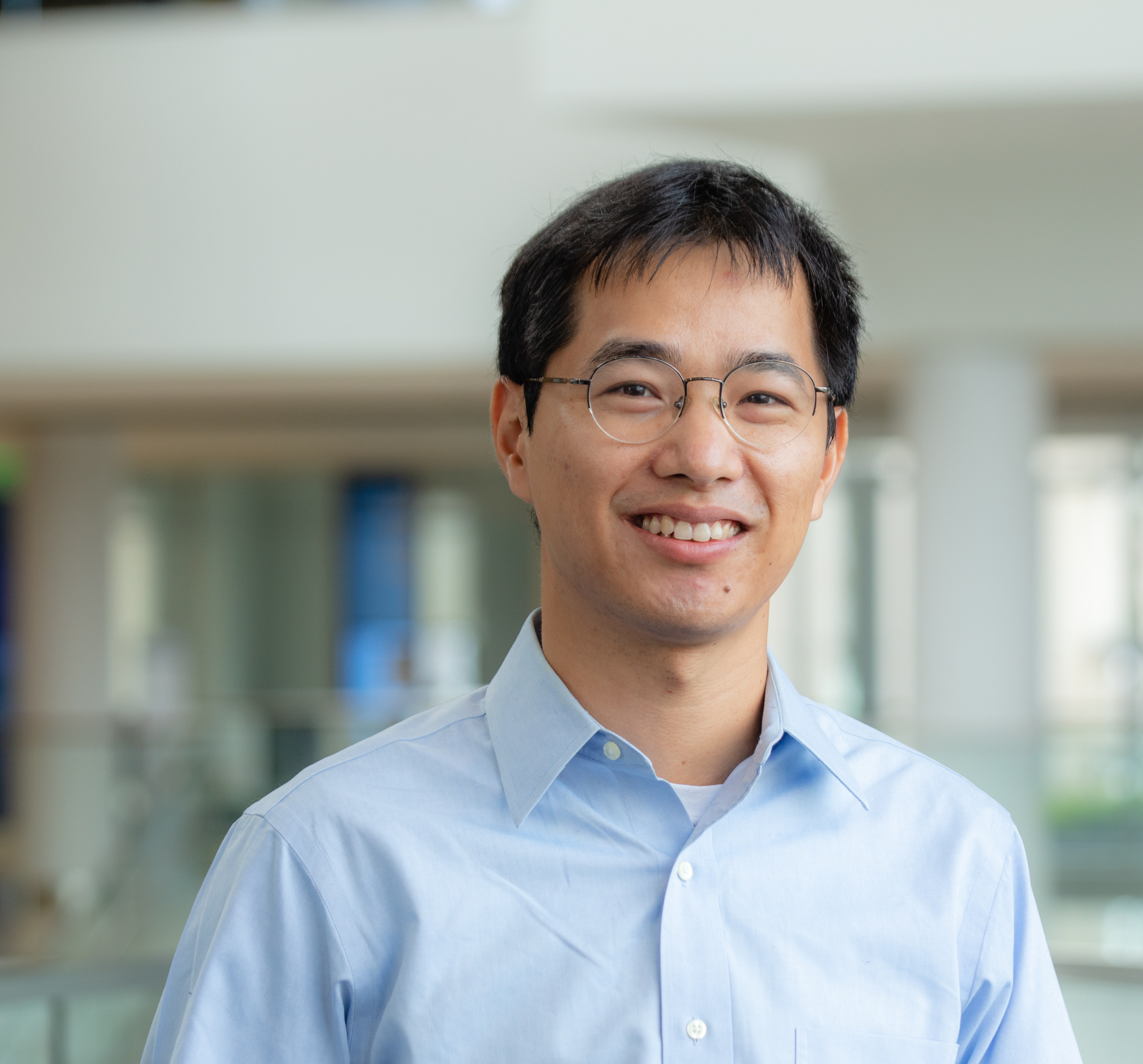Computer Science Department Colloquium
Our upcoming and previous CS talks are as follows.
| Speaker | Affiliation | Date | Time (ET) |
|---|---|---|---|
| Stanley J. Barr | MITRE | Nov. 19, 2021 | 01:30 – 02:30 PM |
| Hoi-To Wai | CUHK | Dec. 10, 2021 | 09:30 – 10:30 AM |
| Ziming Zhao | SUNY | Feb. 11, 2022 | 03:30 – 04:30 PM |
| Xiao Fu | OSU | Feb. 18, 2022 | 01:30 – 02:30 PM |
| Sruti Bhagavatula | Northwestern | Mar. 25, 2022 | 01:30 – 02:30 PM |
| Ping Wang | Stevens | Apr. 1, 2022 | 03:30 – 04:30 PM |
| Hugo Ribeiro | UMASS Lowell | Apr. 6, 2022 | 01:00 – 02:00 PM |
| Jesse Hamilton | UMich | Apr. 15, 2022 | 03:30 – 04:30 PM |
| Paul Li | Oracle Cloud | Apr. 22, 2022 | 04:30 – 05:30 PM |
| Yidan Hu | RIT | Apr. 29, 2022 | 01:30 – 02:30 PM |
Upcoming talks
 | Dr. Yidan Hu, Rochester Institute of Technology. Host: Dr. Ian Chen, UMASS, Lowell Time: 01:30 PM – 02:30 PM ET, April 29 Location: Zoom (Meeting ID: 731 126 8370) |
Title: Secure Database-Driven Dynamic Spectrum Sharing
Abstract
Database-driven Dynamic Spectrum Sharing (DSS) is the de facto technical paradigm approved by Federal Communications Commission (FCC) for increasing wireless spectrum access by allowing unlicensed wireless devices (secondary users) with cognitive radio capabilities to have more flexible and efficient access to the radio spectrum without causing interference to licensed wireless devices (primary users). In a database-driven DSS system, a geo-location database administrator (DBA) manages secondary users’ spectrum access based on the real-time spectrum availability in its service region. An effective approach to improve the spectrum-estimation accuracy in database-driven DSS systems is for the DBA to deploy a small number of dedicated spectrum sensors at strategic locations and outsources the majority of spectrum-sensing tasks to ubiquitous mobile users whereby to construct and maintain a Radio Environmental Map (REM) from periodically collected spectrum measurements. The feasibility of this approach is deeply rooted in the explosive growth in mobile devices with increasing capabilities in sensing, computation, communication, and localization. Security and privacy concerns are among the most challenging obstacles to the wide deployment of database-driven DSS systems armed with spectrum-sensing outsourcing. In this talk, I will present two case studies about the security and privacy challenges in database-driven DSS systems. Specifically, I will introduce a novel spatiotemporal approach to allow the DBA to construct an accurate REM in the presence of false spectrum measurements. Then I will present a novel private-preserving reverse auction mechanism to stimulate mobile users’ participation in crowdsourced spectrum sensing while ensuring high REM accuracy, approximate truthfulness, and differential bid privacy.
Speaker
Yidan Hu is an Assistant Professor in the Department of Computing Security at Rochester Institute of Technology (RIT). She received her B.E. and M.E. degrees in Computer Science from Hangzhou Dianzi University in 2013 and 2016, respectively, and Ph.D. degree in Computer Science from the University of Delaware in 2021. Her research interests are security and privacy issues in networked and distributed systems with the current focuses on cognitive radio networks, mobile crowdsourcing, cloud computing, mobile computing, and private data analysis. She has published her research in various prestigious venues, including IEEE/ACM Transactions on Networking, IEEE INFOCOM, and IEEE ICNP, and won the Best Paper Runner-up at IEEE/ACM IWQoS 2019.
 | Dr. Paul Li, Oracle Cloud. Host: Dr. Ian Chen, UMASS, Lowell Time: 04:30 PM – 05:30 PM ET, April 22 Location: Zoom (Meeting ID: 731 126 8370) |
Title: Auto Machine Learning by Neural Architecture Search
Abstract
Neural architecture search (NAS) has been a popular trend in Auto ML. However, it generally requires great computation to obtain an optimal network structure for different deep learning tasks. In this talk, I will briefly review what we have done on this aspect. Specifically, I will present two of our works published on ICCV 2021 along this direction. 1) NAS with batch normalization to greatly boost the efficiency of NAS; 2) NAS for global and local image transformer aiming for a better vision transformer.
Bio
Dr. Paul Li obtained his Ph.D. degree in the field of computer vision and robotics from the Chinese University of Hong Kong in year 2008. After that, he had been with the Chinese Academy of Sciences in China leading a research center of about 30 members as an associate professor and Ph.D. supervisor. Since 2016, he changed his career path to industry in USA, and now he is a director at Oracle Cloud. Before that, he worked as a principal scientist at Baidu USA. His current major research and development interests include Auto machine learning (ML), low-level image processing, and video understanding, together with their applications on cloud and edge devices.
Previous talks
 | Dr. Jesse Hamilton, University of Michigan. Host: Dr. Ian Chen, UMASS, Lowell Time: 03:30 PM – 04:30 PM ET, April 15 Location: Zoom (Meeting ID: 731 126 8370) |
Title: Rapid Cardiac Magnetic Resonance Imaging: MR Fingerprinting and Physics-Based Deep Learning
Abstract
Cardiac Magnetic Resonance Fingerprinting (MRF) is a novel framework for obtaining quantitative maps of multiple tissue properties (such as the MRI relaxation times T1 and T2) from one rapid acquisition. The purpose of this talk is to introduce the basics of the cardiac MRF technique and provide an overview of recent advances in cardiac MRF, including the use of physics-based deep learning to shorten scan times and improve image quality. During the first half of the presentation, the basic steps in acquiring and reconstructing cardiac MRF data will be described, including pulse sequence design, k-space sampling methods, dictionary generation, and pattern matching. Next, recent advances in cardiac MRF will be discussed, including 1) 3D free-breathing MRF; 2) cine MRF for simultaneous functional imaging and tissue characterization, and 3) applications of deep learning for MRF dictionary generation and parameter map reconstruction.
Speaker Jesse Hamilton received his B.S. degree in Biomedical Engineering from Johns Hopkins University, Baltimore, MD, USA in 2012, and his Ph.D. degree from Case Western Reserve University in 2018 with a focus on rapid quantitative magnetic resonance imaging techniques. After completing postdoctoral research at Case Western Reserve University and the University of Michigan, he joined the Department of Radiology at the University of Michigan as an Assistant Professor in 2020 with a secondary appointment in Biomedical Engineering. Currently, his work focuses on the development of rapid quantitative cardiac MRI methods for imaging the heart, including Magnetic Resonance Fingerprinting, as well as physics-based deep learning algorithms for reconstructing MRI data. He is active in multiple societies, including the International Society for Magnetic Resonance in Medicine and the Society for Cardiovascular Magnetic Resonance, and has authored or co-authored over 20 peer-reviewed articles in the field of rapid imaging and quantitative MRI.
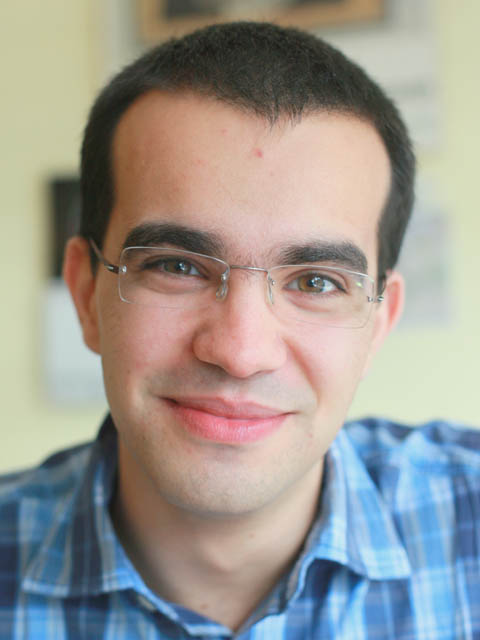 | Dr. Hugo Ribeiro, UMASS Lowell. Host: Dr. Ian Chen, UMASS, Lowell Time: 01:00 PM – 02:00 PM ET, April 6 Location: Zoom (Meeting ID: 731 126 8370) |
Title: Quantum Information Science and Technologies: Research Opportunities in Computer Science
Abstract
Quantum mechanics is a century-old theory that successfully describes counterintuitive phenomena of the microscopic world. Phenomena that, until not so long ago, would be considered irrelevant for the “real”, macroscopic world. Quantum technologies are, however, nowadays providing a paradigm shift in this thinking: They offer a wealth of potentially revolutionary applications that could change the field of Information and Communication Technology and lead to tremendous breakthroughs in disciplines such as medicine and chemistry. In this talk, I will introduce the fundamentals of quantum computing and present the current status, future opportunities, and remaining challenges of the field.
Speaker Dr. Hugo Ribeiro is an Assistant Professor in the Department of Physics and Applied Physics at the University of Massachusetts Lowell. His research focuses on Quantum Information Science, with a particular emphasis on quantum control, decoherence, and architectures for quantum computing. He holds a PhD degree from the University of Konstanz (Germany) and a M. Sc. degree from Ecole Polytechnique Fédérale de Lausanne (Switzerland).
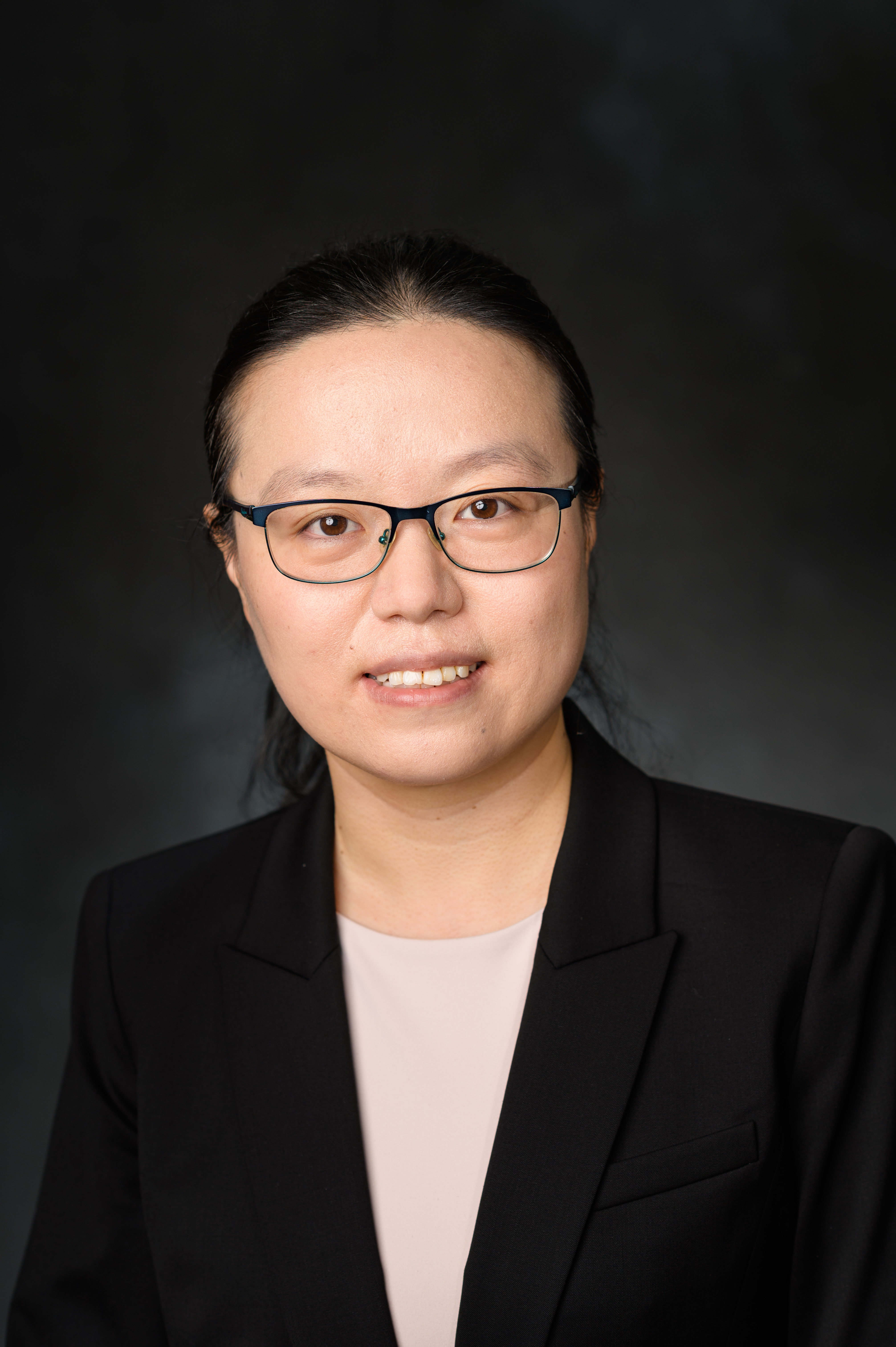 | Dr. Ping Wang, Stevens Institute of Technology. Host: Dr. Ian Chen, UMASS, Lowell Time: 03:30 PM – 04:30 PM ET, April 1 Location: Zoom (Meeting ID: 731 126 8370) |
Title: Automatic Information Retrieval and Extraction from Electronic Health Records
Abstract
Healthcare systems are changing in the era of big data. Advances of artificial intelligence in healthcare make it possible for healthcare providers to sift through tremendous amounts of information efficiently, which eventually help them take care of their patients better. In this talk, I will first introduce our work about question answering on EHR, including text-to-SQL query generation and clinical knowledge base question answering, which aims to seek answers for clinical activity related questions from Tabular EHR and unstructured clinical notes, respectively. This work helps us understand more about the challenges in retrieving information from different data types in EHR. Finally, I will introduce our current work about event extraction from unstructured texts.
Bio Ping Wang is an Assistant Professor in the Department of Computer Science at Stevens Institute of Technology. She received her Ph.D. from Virginia Tech under the supervision of Dr. Chandan K. Reddy in 2021. Her research interests are in the broad area of data mining and machine learning with particular focus on healthcare analytics, including clinical question answering, information extraction, graph mining, and survival analysis. She has published papers in leading conferences (e.g., WWW, CIKM, and AAAI) and high impact journals (e.g., ACM Computing Surveys and IEEE TKDE). She won the “Research PhD Student of the Year” award (one per year) from the Department of Computer Science at Virginia Tech in 2021.
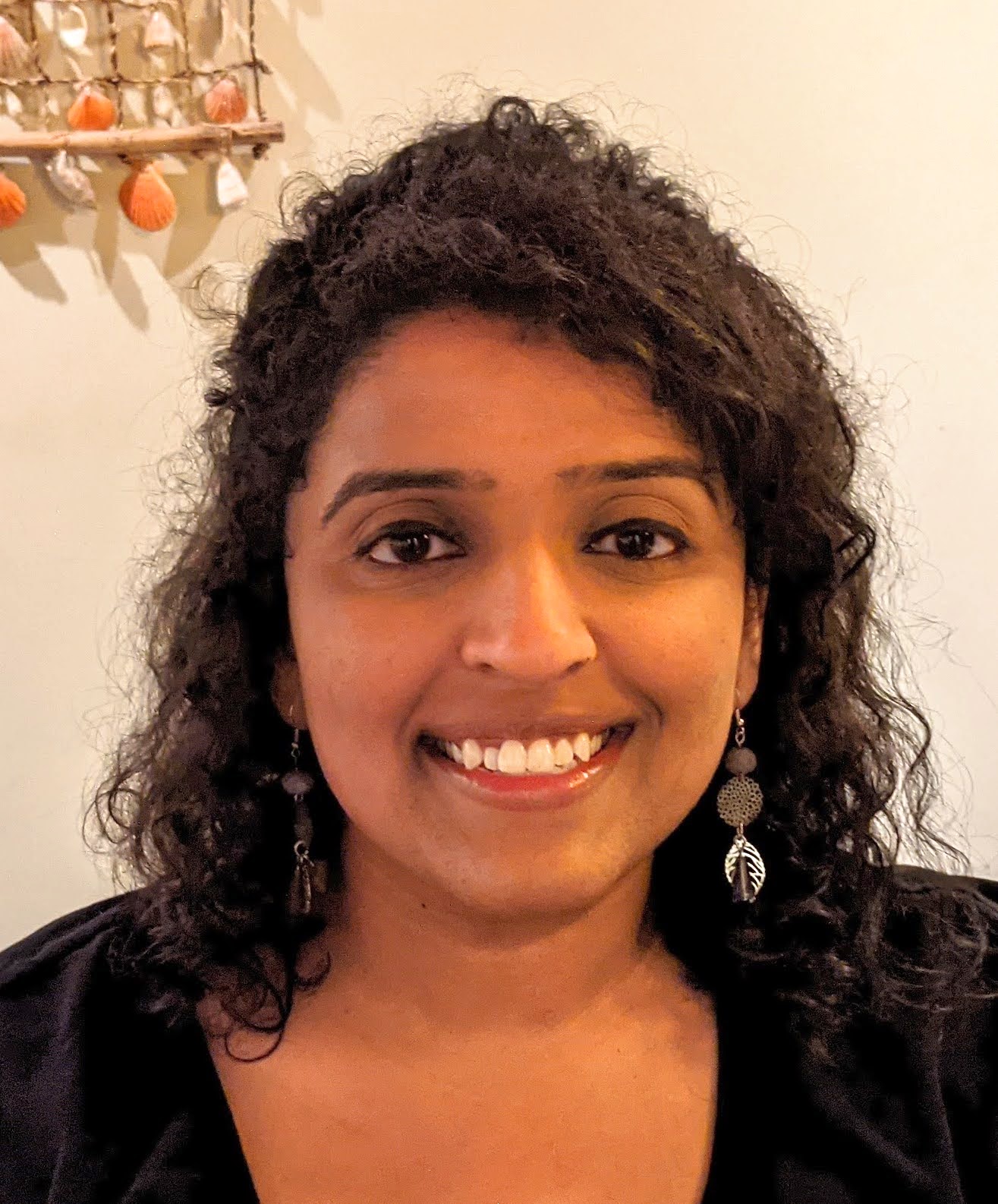 | Dr. Sruti Bhagavatula, Northwestern University. Host: Dr. Ian Chen, UMASS, Lowell Time: 01:30 PM – 02:30 PM ET, March 25 Location: Zoom (Meeting ID: 731 126 8370) |
Title: Measuring and increasing the reach of security information through online media
Abstract
Awareness of security and privacy best practices is important for developing good security habits. Learning about real-world security incidents and data breaches can also alert people to the ways in which their information is vulnerable online, thus playing a significant role in encouraging safe security behavior. In this talk, I will present empirical findings on the extent of awareness and engagement with security information in the wild and the extent of security-enhancing behaviors after data breaches based on real-world measurements of longitudinal computer usage data. I will then discuss the potential of social networks for disseminating this information more effectively and future work for increasing its potential.
Bio Dr. Sruti Bhagavatula is an Assistant Professor of Instruction at Northwestern University. Her research is in the space of security and privacy with a particular emphasis on the spread of security information, measuring security behavior, social networks, and human factors. She holds a PhD degree and an MS degree from Carnegie Mellon University’s School of Computer Science and received a BS from the University of Illinois at Chicago.
 | Dr. Vijay Shah, George Mason University. Host: Dr. Ian Chen, UMASS, Lowell Time: 03:30 PM – 04:30 PM ET, March 18 Location: Zoom (Meeting ID: 731 126 8370) |
Title: Intelligent 5G and Beyond 5G Radio Access Networks (RANs)
Abstract
On contrary to previous generation mobile wireless networks, 5G and Beyond (B5G) wireless networks are expected to undergo an unprecedented. Consequently, B5G wireless networks, particularly, radio access networks (RANs) are becoming increasingly. In this talk, we will discuss a few recent works where we designed AI techniques to solve key challenges in B5G RANs (especially, PHY and MAC layers). Following this, we briefly present an emerging industry-driven open radio access network (O-RAN) architecture that provides sufficient openness, flexibility, and well-defined interfaces to incorporate intelligence in RANs.
Speaker
Dr. Vijay K. Shah is an Assistant Professor in the Cybersecurity Engineering (CYSE) Department at George Mason University, Fairfax, VA. He is also a faculty member of Commonwealth Cyber Initiative, a Virginia state-wide initiative to foster 5G wireless, autonomous systems, data and cybersecurity research. Before joining Mason in 2021, he was a Research Assistant Professor at Virginia Tech. Dr. Shah research interests include 5G/NextG wireless networks, O-RAN, and wireless testbed prototyping. He has served as a PI/Co-PI on a dozen of federal and state-funded research projects, including NSF CCRI project where we will prototype Open AI Cellular (OAIC) framework.
 | Dr. Xiao Fu, Oregon State University. Host: Dr. Ian Chen, UMASS, Lowell Time: 01:30 PM – 02:30 PM ET, Feb 18 Location: Zoom (Meeting ID: 731 126 8370) |
Title: Understanding Latent Correlation-Based Multiview Learning and Self-Supervision: An Identifiability Perspective
Abstract
Multiple views of data, both naturally acquired (e.g., image and audio) and artificially produced (e.g., via adding different noise to data samples), have proven useful in enhancing representation learning. Natural views are often handled by multiview analysis tools, e.g., (deep) canonical correlation analysis [(D)CCA], while the artificial ones are frequently used in self-supervised learning (SSL) paradigms, e.g., BYOL and Barlow Twins. Both types of approaches often involve learning neural feature extractors such that the embeddings of data exhibit high cross-view correlations. Although intuitive, the effectiveness of correlation-based neural embedding is mostly empirically validated. This work aims to understand latent correlation maximization-based deep multiview learning from a latent component identification viewpoint. An intuitive generative model of multiview data is adopted, where the views are different nonlinear mixtures of shared and private components. Since the shared components are view/distortion-invariant, representing the data using such components is believed to reveal the identity of the samples effectively and robustly. Under this model, latent correlation maximization is shown to guarantee the extraction of the shared components across views (up to certain ambiguities). In addition, it is further shown that the private information in each view can be provably disentangled from the shared using proper regularization design. A finite sample analysis, which has been rare in nonlinear mixture identifiability study, is also presented. The theoretical results and newly designed regularization are tested on a series of tasks.
Speaker
Xiao Fu received the B.Eng. and MSc. degrees from the University of Electronic Science and Technology of China (UESTC), Chengdu, China, in 2005 and 2010, respectively. He received the Ph.D. degree in Electronic Engineering from The Chinese University of Hong Kong (CUHK), Shatin, N.T., Hong Kong, in 2014. He was a Postdoctoral Associate with the Department of Electrical and Computer Engineering, University of Minnesota, Minneapolis, MN, USA, from 2014 to 2017. Since 2017, he has been an Assistant Professor with the School of Electrical Engineering and Computer Science, Oregon State University, Corvallis, OR, USA. His research interests include the broad area of signal processing and machine learning.
Dr. Fu received a Best Student Paper Award at ICASSP 2014, and was a recipient of the Outstanding Postdoctoral Scholar Award at University of Minnesota in 2016. His coauthored papers received Best Student Paper Awards from IEEE CAMSAP 2015 and IEEE MLSP 2019, respectively. He serves as a member of the Sensor Array and Multichannel Technical Committee (SAM-TC) of the IEEE Signal Processing Society (SPS). He is also a member of the Signal Processing for Multisensor Systems Technical Area Committee (SPMuS-TAC) of EURASIP. He is the Treasurer of the IEEE SPS Oregon Chapter. He serves as an Editor of Signal Processing. He was a tutorial speaker at ICASSP 2017 and SIAM Conference on Applied Linear Algebra 2021.
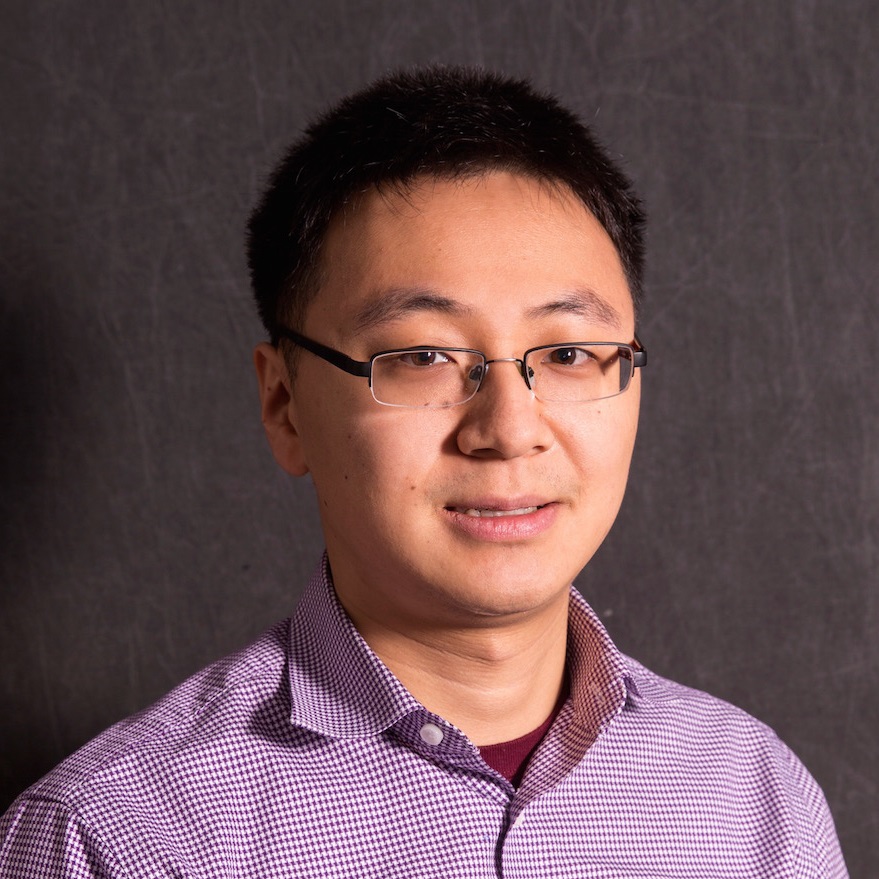 | Dr. Ziming Zhao, CactiLab, University at Buffalo. Host: Dr. Ian Chen, UMASS, Lowell Time: 03:30 PM – 04:30 PM ET, Feb. 11 Location: Zoom (Meeting ID: 731 126 8370) |
Title: Rethinking Trusted Execution Environments for Embedded and IoT Systems
Abstract
Trusted Execution Environments (TEE) are offered by the CPU to keep code and data loaded inside to be protected, with respect to confidentiality and integrity, from the Rich Execution Environment (REE). TEEs can provide a haven to execute software in security and fault isolation and also serve as a trusted anchor to detect and mitigate code reuse attacks by enforcing Control-Flow Integrity (CFI) and Control-Flow Attestation (CFA) on REE software. The hardware and software of existing embedded and IoT TEEs nevertheless have the following issues, making the TEE-based solutions for isolation, CFI, and CFA either ineffective or inefficient: I1) they only provide one trusted execution environment; I2) they do not encrypt the memory, leaving them vulnerable to cold boot attacks; I3) they only provide a static and fixed hardware trusted computing base (TCB), which cannot be customized for different applications; I4) the TEE shares a processor core with the REE in a time-sliced fashion, making it vulnerable to cache side-channel attacks and undermining TEE security promises; I5) the software TCB in TEEs are large, creating big attack surfaces for run-time attacks that hijack the control or data flow; and I6) frequent context switches between the TEE and REE are very expensive, rendering CFI and CFA impractical for real-world deployment.
It is thus imperative to rethink the design of embedded and IoT TEEs and combine existing TEEs with overlooked hardware features, such as Debug Unit (DU), for effective and efficient software attack prevention, detection and response. In this talk, I will first discuss our on-going project BYOTee, an infrastructure for building multiple customized and physically isolated TEEs with a configurable and minimal hardware and software TCB on commodity SoC FPGA devices. The customized TEEs can securely execute security-sensitive code inside them. I will also discuss our on-going project TeeCFIA, an efficient forward and backward edge CFI enforcement and attestation infrastructure with the Cortex-M TrustZone. TeeCFIA minimizes the number of context switches by utilizing debug units for tracing. TeeCFIA does not rely on instrumentation and can work on privileged programs, such as bare-metal firmware and RTOS.
Speaker
Ziming Zhao is an Assistant Professor at the Department of Computer Science and Engineering (CSE) and the director of the CyberspACe securiTy and forensIcs lab (CactiLab; https://cactilab.github.io/), University at Buffalo. His current research interests include system and software security, trusted execution environment, formal methods for security, and usable security. His research has been supported by the U.S. National Science Foundation, the U.S. Department of Defense, and the U.S. Air Force Office of Scientific Research. He is a recipient of the NSF CRII Award. His research outcomes have appeared in IEEE S&P, USENIX Security, ACM CCS, NDSS, ACM TISSEC, IEEE TDSC, IEEE TIFS, etc. He is also a recipient of best paper awards from USENIX Security 2019 and ACM CODASPY 2014. He received the Ph.D. degree in Computer Science from Arizona State University, Tempe, AZ, in 2014.
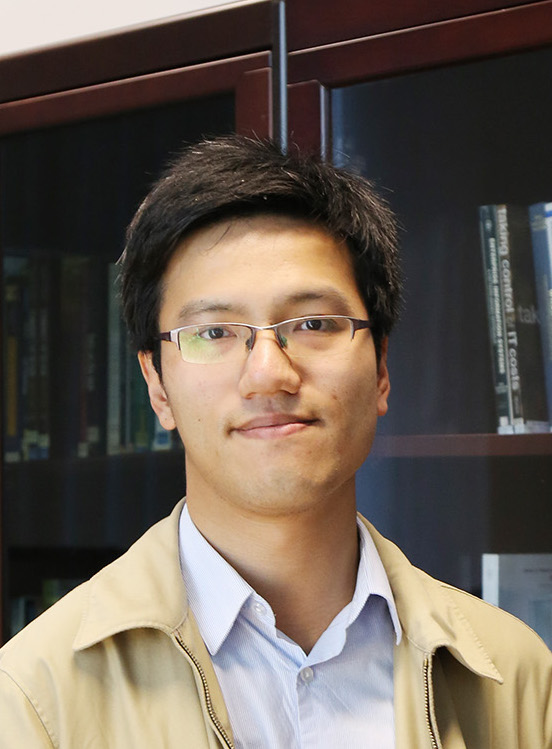 | Dr. Hoi-To Wai, The Chinese University of Hong Kong, Hong Kong Host: Dr. Ian Chen, UMASS, Lowell Time: 09:30 AM – 10:30 AM ET, Dec. 10 Location: Zoom |
Title: Low Pass Graph Signal Processing - Applications and Beyond
Abstract
As a key development in the emerging field of graph signal processing, the notion of graph filters has been used to define generative models for graph data which explains many examples of network dynamics. With this interpretation, classical signal processing tools such as frequency analysis have been applied with analogous interpretation to graph data, generating new insights for data science. In this talk, we present a “user guide” on a specific class of graph data, where the generating graph filters are low pass such that the filter attenuates contents in the higher graph frequencies while retaining contents in the lower frequencies. Our choice is motivated by the prevalence of low pass models in application domains such as social networks, financial markets, and power systems. We demonstrate how to leverage properties of low pass graph filters to learn graph topology; efficiently represent graph data through sampling, recover missing measurements; infer high level features of graph topology (such as community, centrality) when the data is imperfect, e.g., rank deficient or with missed observations. We also discuss a data-driven approach to (blindly) detect if the graph filter is indeed low pass.
Speaker
Hoi-To Wai received his B.Eng. degree and his M.Phil. degree in electronic engineering from the Chinese University of Hong Kong (CUHK) and his Ph.D. degree in electrical engineering from Arizona State University (ASU), Tempe. He is an assistant professor in the Department of Systems Engineering and Engineering Management, CUHK, and previously held research positions at ASU; UC Davis; Telecom ParisTech; Ecole Polytechnique; and MIT. His research interests include signal processing, machine learning, and distributed optimization. His papers are mainly published on prestigious conferences such as COLT, NeurIPS, ICASSP, AAAI, ACC. His dissertation received the Dean’s Dissertation Award from ASU, and he received a Best Student Paper Award at the IEEE ICASSP.
 | Dr. Stanley J. Barr, The MITRE Corporation Host: Dr. Ian Chen, UMASS, Lowell Time: 1:30 PM – 2:30 PM ET, Nov. 19 Location: Zoom |
Title: Highlights from MITRE’s work in cyber deception
Abstract
During the past year, our society has moved significantly from working in place to working virtually and from home. Cybersecurity becomes important not only for institutions but also for us, the end users. In this talk, Dr. Barr will share how the industry, particularly, MITRE, perceives and addresses the rapidly increasing cyber-attacks with a focus on cyber deception and Advanced Persistent Threats (APT). Specifically, the talk will include great statistics the industry learned in real attacks and defenses, and how MITRE’s Engage Framework greatly enhances our ability against such attacks.
Speaker
Dr. Stanley Barr is a three time graduate of University of Massachusetts Lowell. He has a BS in Information Sciences, an MS in Mathematics, and a PhD in Computer Science. He has coauthored published papers in malware analysis, barrier coverage problems, expert systems for network security, and robotic manufacturing. He has spoken at MILCOM, RSA, Bsides Boston, and Defcon. He has been a panelist for conferences. Panels topics have included fighting through real world computer network attacks from both external and internal threats. Currently, he is a Senior Principal Scientist at The MITRE Corporation, a not-for-profit corporation that manages six federally funded research and development centers (FFRDCs).
